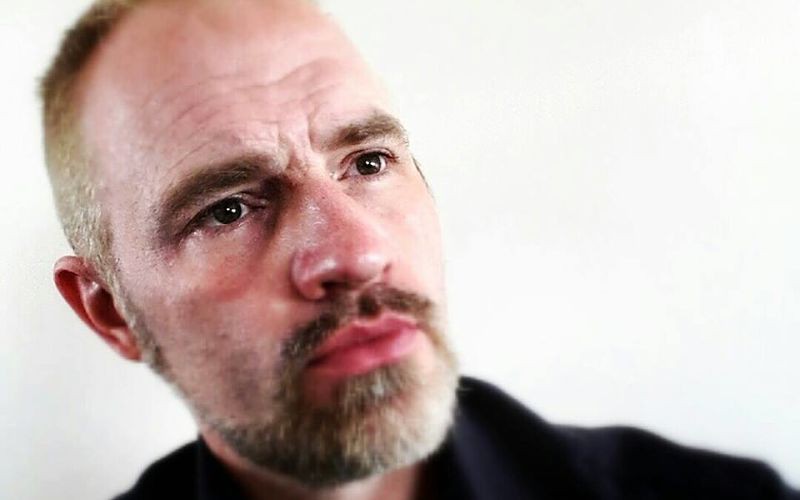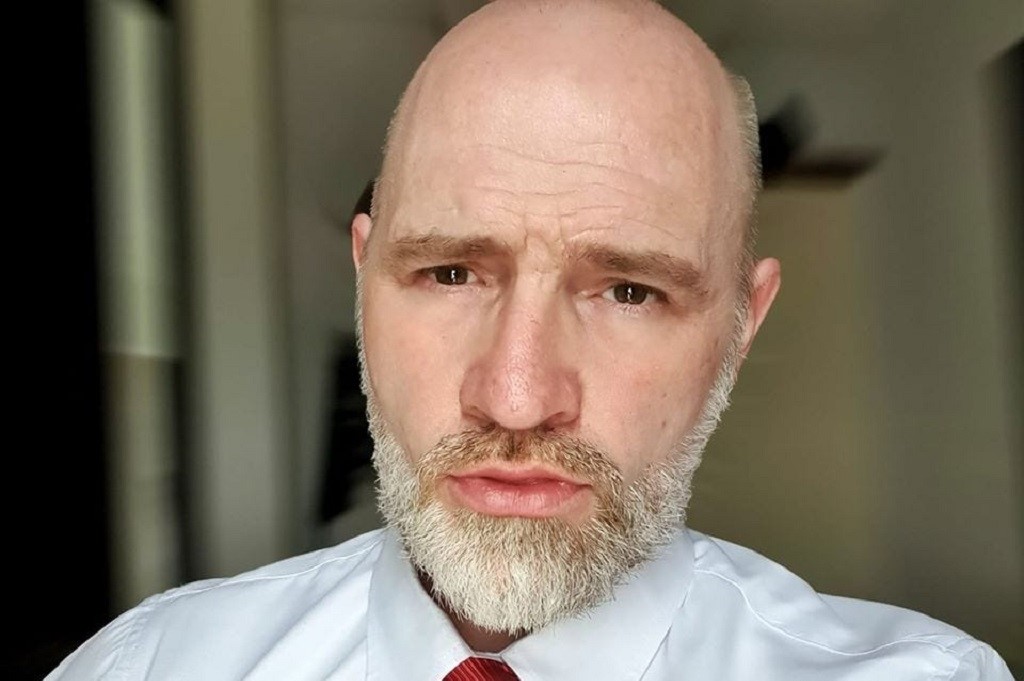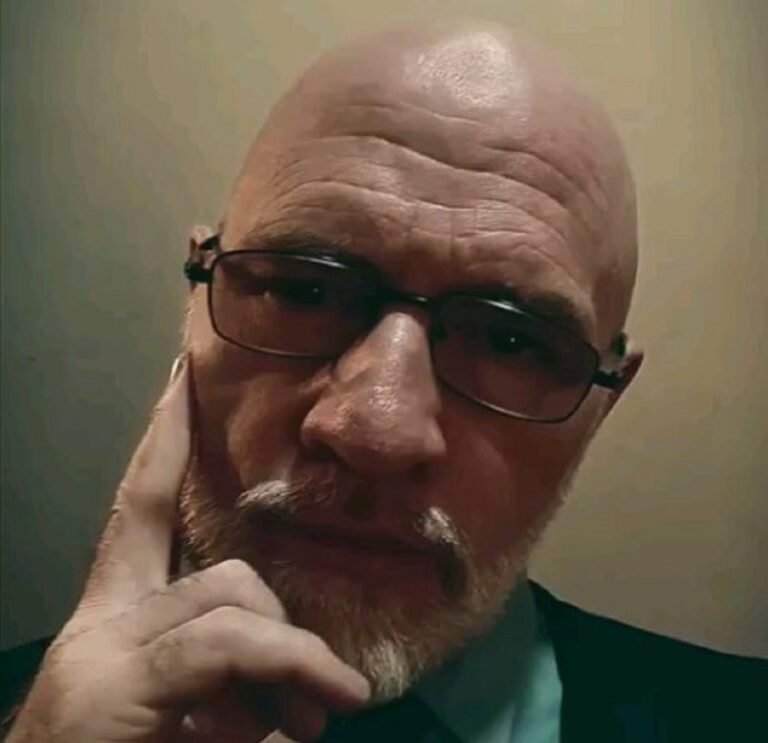Shahid Bolsen: From Controversy To Activism & The Middle Nation - [Latest News]
Apr 26 2025
Does the life of an individual, particularly one shrouded in controversy, truly reflect the complexities of the world or simply mirror its inherent contradictions? The story of Shahid King Bolsen, an American figure whose life has traversed continents and controversies, offers a compelling case study in this regard.
The narrative of Shahid Bolsen is a tapestry woven with threads of activism, legal battles, and a relentless pursuit of a platform. He stands as a prominent public intellectual and a vocal commentator on global Muslim affairs. His journey, from the United States to the Middle East, has been marked by both acclaim and accusations, making him a figure difficult to definitively categorize.
His journey began in Boulder, Colorado, where he was born in 1971. Raised primarily by his mother after his parents divorced, he was raised as a Catholic. He later pursued political science classes at Metropolitan State University before dropping out. This foundation laid the groundwork for his later engagement with political and social issues. His later conversion to Islam marked a significant turning point.
| Category | Details |
|---|---|
| Full Name | Shahid King Bolsen |
| Birthdate | 1971 |
| Birthplace | Boulder, Colorado, USA |
| Religion | Islam (Converted) |
| Marital Status | Married to Asya (Palestinian) |
| Education | Attended political science classes at Metropolitan State University (Dropped out) |
| Known For | Public intellectual, activist, political commentator, founder of the Middle Nation Channel |
| Legal Issues | Convicted of the murder of Martin Herbert Steiner in the UAE; Suspected in the kidnapping of Sheikha Latifa Al Maktoum; |
| Media Presence | Founder of the Middle Nation Channel, active on social media. |
| Official Website | Shahid King Bolsen |
The focus on the Muslim community is a consistent theme, and a core element. Bolsen has garnered a large social media following in the Middle East, using the platform to engage in political commentary and analysis. His writings and public appearances often center on issues of social justice, human rights, and political advocacy, all framed through the lens of Islamic perspectives. Through this, he has become a prominent figure with a strong voice, even if a controversial one.
The legal troubles, however, are significant. In 2006, Bolsen was convicted in Sharjah, UAE, for the murder of a German engineer, Martin Herbert Steiner, whom he met online. He later admitted to the crime. A crucial aspect of this case involved his escape from prison in 2012. The events surrounding this escape, along with the details of the murder itself, continue to be a point of contention and controversy.
Further complicating the narrative is his alleged involvement in the abduction of Sheikha Latifa Al Maktoum, though these claims have not been proven. These accusations have added another layer of scrutiny to his persona. His past is marred by the challenges, including wrongful imprisonment that profoundly shaped him. It is also important to note that he is accused of propaganda.
In the UAE, he has faced very serious legal issues. The Sharjah Criminal Court of First Instance sentenced him to death in 2006. However, due to a procedural error - the judges forgot to sign the document sentencing him - a retrial was ordered. This incident underscores the complexities and potential for bureaucratic oversights within the legal system of the region.
The case of Shahid Bolsen presents a fascinating paradox: a man who could be seen as a voice for the marginalized, yet is entangled in serious legal accusations. This complexity is reflected in his social media presence. His views on global Muslim affairs are a regular feature on the "Middle Nation Channel," a platform he founded. He analyzes events across the world affecting the Muslim community.
His life story also includes periods of hardship. There were sleepless nights where he would pore over books and writing. One of his close associates noticed that something was "eating away at Shahid". He suffered from headaches and insomnia. These challenges serve as a reminder of the human cost of his journey.
The story of Shahid Bolsen is a study in contrasts. He is a convicted killer but also an advocate for social justice. He is a controversial figure yet a prominent public intellectual. He is an American citizen involved in Middle Eastern politics. It is this very dichotomy that makes his story so captivating and yet so difficult to fully understand.
Bolsen's story also brings up the importance of think tanks. While they do not have ideologies, states and populations do, which is where think tanks come in. Their influence cannot be ignored in understanding such a complex life.
The Middle Nation Channel, founded by Bolsen, aims to promote the political independence of the Muslim world, which is further highlighted through his work on social media. He provides legal consulting and PR advice. He also offers content writing and research analysis for audience development. This clearly demonstrates his commitment to the cause.
The American software engineer turned activist also orchestrating a bold escape and exposing power abuses in the middle east, has clearly left his impact. His actions have sparked intense debates. From his early struggles to his involvement in the Arab Spring and his current projects, his life has been one of constant motion.
His narrative includes a variety of elements, ranging from his personal struggles in America to his alleged involvement in high-profile cases in the Middle East. One notable incident was his 2006 admission to killing Martin Herbert Steiner and his subsequent escape from prison. Bolsen's troubled road to Sharjah's death row is a testament to the very nature of his controversial existence.
The subjective criteria used to determine the classification of Bolsen's actions are often based on support for or criticism of American policy. One of the key examples of this is when Bolsen was convicted in Sharjah, UAE for the murder of a German engineer. After the verdict, he went on to request more time to appoint a new lawyer and was granted an appeal.
Bolsen's story also involves a conversion to Islam, and his marriage to Asya, a Palestinian woman. He is also a former journalist. As of 2025, Shahid is 54 years old. He also has siblings, but does not mention them. His life story reflects his resilience. Bolsen admitted to killing a german engineer he met online in 2006 and escaped from prison.
In an attempt to understand the allegations leveled against him online, Bolsen agreed to answer questions. Through this research, and a potential documentary, he has been able to present his account and challenge the narrative, although this also presents a challenge for anyone trying to understand his story. His past is also linked to the case of Sheikha Latifa Al Maktoum.
He orchestrated both the kidnapping of sheikh latifa al maktoum and the subsequent publicity. He has also been described as a political independent leader, who is helping muslim countries achieve economic sovereignty. Bolsen, in a statement, has stated he was trying to control the victim, rather than kill him.
In december 2005, on her last visit to the uae, a close associate noticed he was suffering from really bad headaches. In 2006 he confessed to sharjah police that he had killed a german engineer he met online. The evidence clearly shows his admission in the uae court.
The case of Shahid Bolsen is therefore complex, and there are many unanswered questions. The true nature of his actions, and the motivations behind them, remain the subject of debate and speculation. It is a story that underscores the complexity of individuals, and the challenges of trying to fully understand them.


